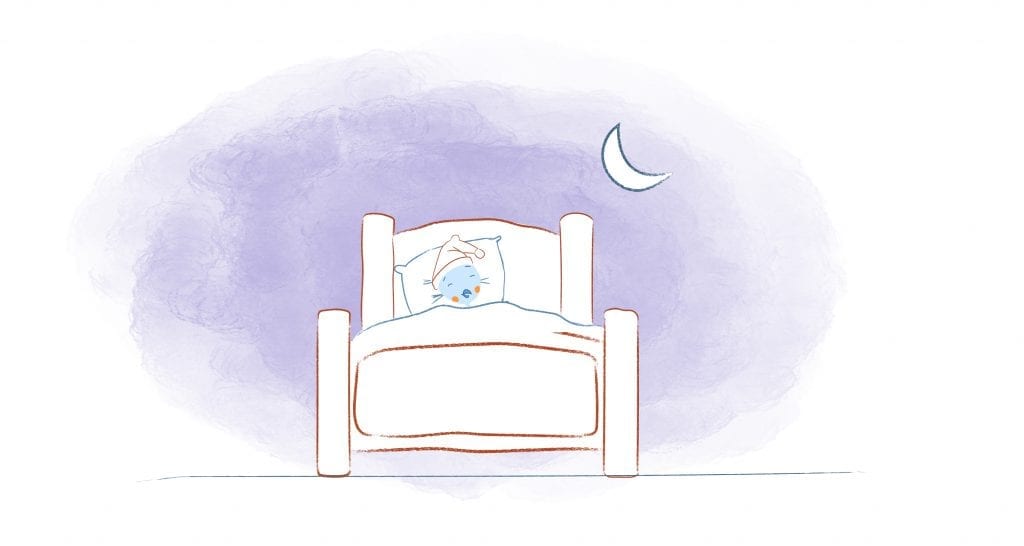

The alarm clock goes off. You jump out of bed. There’s a million things to do and only so much time before you have to leave for work.
Meals have to be made. You have to check your email and calendar to make sure everything’s in order. And, where the heck did you put your keys?
You rush out the door. Arrive at the office fifteen minutes late. Now you have to shuffle through all of yesterday’s paperwork piled on you desk.
Your day just started and you’re already spent.
Meanwhile, you have a colleague who arrived to work fifteen minutes early and already had a calm and productive morning. What’s their secret? They’re an organized person and did these three things every night before going to bed.
1. Tidy-up.
Whether if it’s a sink full of dishes, a desk with scattered paperwork, or laundry that has to be put away, organized people don’t wait until tomorrow. They clean-up any messes and organize both their personal and work spaces.
The main reason for keeping this tidy is that whatever is put-off today means that’s more work to do tomorrow. Sure. Cleaning the kitchen may be their favorite task at the the end-of-the day. They go ahead and wipe down the counters and put the dishes away. With that out of the way, they can get more accomplished tomorrow.
Oh yeah — tidying-up — also saves them 2.5 days a year searching for their lost things.
There’s also some psychology behind this.
According to Marie Kondo, author of the best-selling book The Life-Changing Magic of Tidying Up, tidy-up allows us to chuck the stuff that has no meaning, while keeping the items that “spark joy.”
“After all, what is the point in tidying? If it’s not so that our space and the things in it can bring us happiness, then I think there is no point at all,” Kondo writes in the book. “Therefore, the best criterion for choosing what to keep and what to discard is whether keeping it will make you happy, whether it will bring you joy.”
What’s more, when things in order, we’re less stressed.
“Most of us are operating in a state of chronic stress; we’re always on,” David W. Ballard, Psy.D., the assistant executive director for the American Psychological Association’s Center for Organizational Excellence told HuffPost Healthy Living. Being tidy is how some of us are “able to really stay focused and stay organized do things to manage their stress effectively.”
Finally, a 2013 Association for Psychological Science study found that working at a tidy desk may promote healthy eating and generosity.
2. Prepare for tomorrow.
Everything is clean and items are put back where they belong. Organized people now take the time to prepare for tomorrow.
This could be anything from jotting down to-do-lists, checking their calendars, packing their lunch, or setting out their clothes.
The morning can always be hectic — especially when you have kids — so preparing for tomorrow tonight means that you’re not manically rushing around. Instead you can wake-up and dive right into your morning routine.
Morning routine.
Remember, having a regular morning routine means that you’re not only getting the day started on the right foot, it also means that you’re going to be productive throughout the entire day.
Making a plan.
An additional perk is that when you prepare for tomorrow, there isn’t any wasted time in your schedule. As Renzo Costarella writes in a previous Calendar article, “If your calendar looks empty day to day then it’s probably a sign that you aren’t getting yourself out there enough.” Instead of waiting, “make a plan and address any necessary changes the night before rather than the morning of.”
3. Plan out their sleep.
This isn’t just a habit practiced by organized people. It’s also something that successful people do as well.
“Much has been written around the dangers busy people face running chronic sleep deficits. One habit I know several highly successful people do is to simply make it a priority to get enough sleep — which can be a challenge for workaholics or entrepreneurs,” says Michael Kerr, an international business speaker and author of “You Can’t Be Serious! Putting Humor to Work.”
First steps to better sleep.
The first step to take in getting a better night’s rest is by setting and sticking to a regular bedtime. Even if you’re not falling asleep yet — it ensures that you aren’t staying up too late. For example, if you wake-up at six am, then you should be in bed no later than 10pm so that you can get six to eight hours of sleep.
However, an hour or so before your bedtime — you also need to go through your bedtime rituals:
- Dim the lights so that your body can release melatonin.
- Set the thermostat to around 65 degrees. You become sleepier when you’re cool.
- Stay out of your bedroom until you’re ready for bed. Remember, your bedroom is a place for rest, not work.
- Turn off your gadgets. The blue light they emit keeps you up.
- Don’t eat or drink alcohol immediately before bed.
- Have a relaxing activity, such as meditating, reading, or taking a hot shower.
- Declutter — particularly in your sleeping area. Again, clutter makes you stressed and anxious. You don’t want that before bed.











Abby Miller
Student at UC Berkeley, currently working on a degree in Electrical Engineering/Computer Sciences and Business Administration. Experienced in CSX, productivity management, and chatbot implementation.